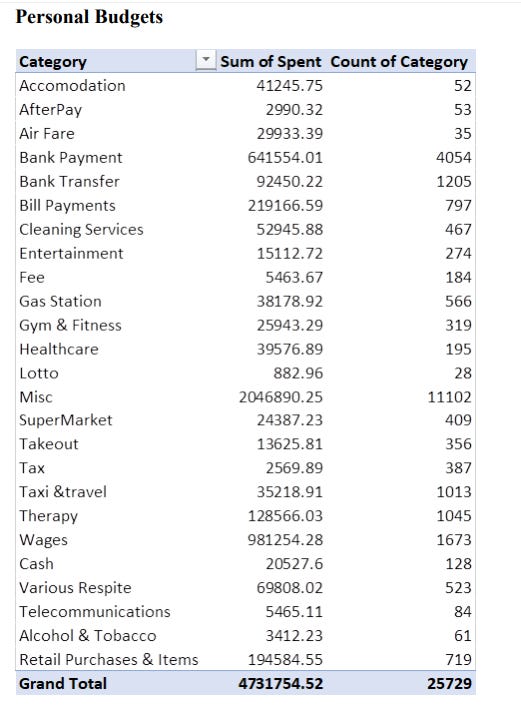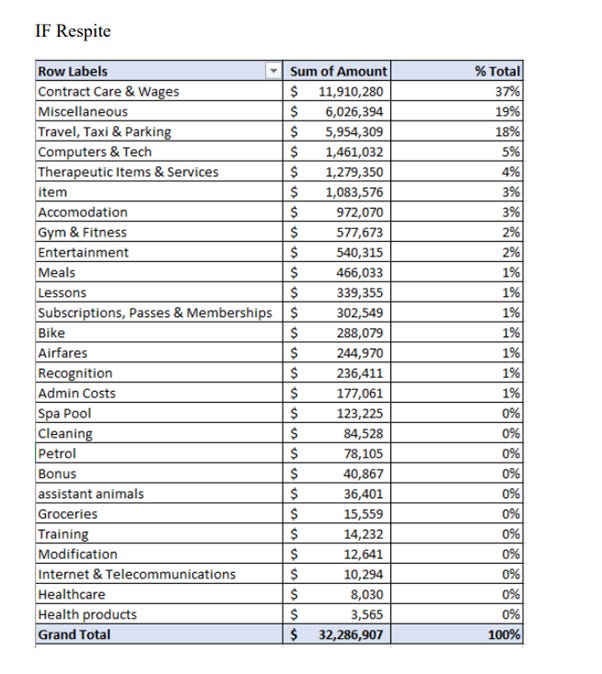Lies, Lies, and Damned Lies
From Education to Health to Disability, is there anything this government isn't willing to lie about?
(This is a long-form post)
We are living in a post-truth era. Or our politicians are, at least, struggling as they seem to be with keeping track of the tenuous line between reality and utter nonsense. Despite the media’s best efforts to help them recall the facts, they still seem to be muddling them for fantasy with alarming regularity as lies flow from their lips with ease.
Or what it’s better known as these days: disinformation.
That’s what Health NZ’s Board of Directors called it, in their feud with the Government over who isn’t paying attention to whose finances. Earlier this month, several of the resigning members accused Luxon of spreading disinformation while Dr. Shane Reti, the doctor who canned our smoking ban, has installed commissioner Lester Levy to replace them in a blatant budget takeover.
Health isn’t the only topic where the government are happy to fudge facts to justify poor policy. Minister for Regulation David Seymour is taking our preschools to task, vowing to cut through the orange tape that is keeping your children safe and educated.
In June, he commissioned a review of the financial viability of the sector in response to widespread concerns, but rather than acknowledge the flaws in the private funding model that’s led to this situation, he attempted to ‘spin’ the financial issues as being caused by extreme over-compliance with ridiculous regulations.
"Telling a school that they can't actually teach phonics, that they can't teach young children the ABC, I mean the average New Zealander would just throw up their hands at that ... there's no shortage of silly rules and regulations we can get rid of, that will do nothing to impact child safety and child welfare.
"I think it's fair to say that this sort of stuff is legion and it's seriously impeding people in the sector's ability to get the business done of providing safe and constructive education in childcare for parents at a price they can afford.”
The average parent would throw their hands up at that – if it was a rule that existed. Reading this in an RNZ article, I found it frankly unbelievable, and so sought clarification on this situation from David Seymour’s office via OIA. I received this response:
Hon David Seymour regularly receives correspondence from a wide range of people sharing their views, thoughts, and concerns on diverse topics. The reference to teaching phonics in the article related to a preschool reporting concern about not being able to run their phonics, math, language and literacy, and sensory motor development programs unless the children showed interest.
According to David Seymour’s office, Seymour is claiming our preschools are in financial crisis because they can’t teach phonics “or the ABCs”, a fact he has based entirely on a single preschool’s “concern” about directions to not give structured lessons to children who aren’t interested in them.
I asked if the preschool was correct in their concerns that this was the “regulation”. I have yet to receive a reply.
Such phonics directives, if they do exist, are a result of a 2011 ERO review that criticised preschools’ use of formal phonics lessons over more effective and engaging methods of teaching.
In some services, educators were conscious of the need to link children’s knowledge of names of letters with sounds of individual or combinations of letters. A small number of services did not promote letter-sound knowledge or did not do this well for certain groups of children. For example, over-threes participated in a formal phonics programme, but phonological awareness for younger children was not promoted through informal activities.
About a fifth of services used a commercial phonics programme as part of their literacy teaching and learning mostly, but not always, for older children. Some services had integrated phonics into children’s play or included a focus on phonics during formal group times. However, in a few services, the use of phonics, including teaching phonics to under-twos, and basing the whole literacy programme on a commercial phonics package, was not appropriate. Large formal group mat times with a one-size-fits-all approach to literacy teaching did not cater for children with more advanced abilities, or those not ready to learn what was being taught.
The report lists a range of phonics-based learning activities that preschools engaged in which they considered were being used appropriately:
• through stories, rhymes and songs, both formally and informally
• using worksheets and flashcards
• in conversations
• in the context of play, for example: puzzles, rhymes, magnetic letters, “I spy” with sounds and letters
• word play such as alliteration, descriptive language and onomatopoeia
• computer programmes
• displaying posters, books and friezes about the alphabet at child level
• providing board games, alphabet blocks and letter/object cards
• sounding out letters when writing names, and when labelling objects and artwork
• questioning children about letters and sounds as opportunities arise
• having special letter days
It seems much more reasonable when said like that, doesn’t it?
This is far from the first time the government have sought to demonise the status quo to align with their campaign of defund and deregulate.
Also learnt via OIA request, in March, the former Minister for Disabilities Penny Simmonds, (who lost her role due to the abhorrent handling of this very situation) was provided communication from Whaikaha around their anticipated overspend, and the most effective ways to cut big chunks of money from the budget fast, presumably quickly identifying therapy and items as a large expense in both the Individualised Funding and in the Personalised Budgets that they could trim in bulk
.
IF- HCSS
Most of the information I sought was redacted, but as part of this correspondence, Whaikaha provides what I can only assume is media-spin for whatever unfortunate Minister has to announce this change. They acknowledge that “Some of these purchases have recognised that effective support of the disabled person, including psychological services, speech-language services, services that work with young people who have both intellectual disability and mental illness, and the purchases of items that support disabled children to self-regulate, are an effective way to reduce the need for more intensive breaks”, but goes on to search for a justification to limits these funds and finds: “We have recorded evidence through providers of the range of purchases that are occurring, with access to pedicures, hairdresser appointments, and massages at the extreme end of the continuum.”
Whaikaha also states, incredibly distastefully, that families spending money on travel accommodations for disabled people are “alternatives to finding care”, rather than what I would have described it as: taking your disabled family member on holiday with you. Whaikaha considers it “not clear that paying these expenses is necessary … where the cost of alternative care is not sought”.
Leave Timmy with Grandma for the next trip, Mum.
Quite literally, this is the Ministry of Disabilities telling you to keep your disabled child at home. Simmonds at least had the sense not to repeat that one to reporters.
At the same time, Whaikaha also provided briefing documents explaining why their expenses have grown:
Flexible funding supports comprise: Individualised Funding (IF), Personal Budgets, and Carer Support. Flexible funding, particularly IF, is one of the fastest growing areas of Whaikaha expenditure, with expenditure more than doubling (from $230 million to $520 million) between 2019/20 to 2023/24. In that time, the number of people with these supports has increased from just over 20,000 to almost 34,000.
They warn that imposing limits will reduce flexibility for key groups of people:
These measures would affect in some way up to around 34,000 people to whom Whaikaha provides disability support services.
Under flexibility, families who have struggled to obtain respite have been able to use flexibility to do some things to invest in their wellbeing and sustain them in the contribution they make to the lives of their disabled family members. The Autism community were heavy early adopters of flexibility when it was first introduced, reflecting that many Whaikaha funded services have not been redeveloped to be appropriate to those with Autism. We know Māori and Pacific engagement has increased with flexibility, particularly through Personal Budgets.
As a result, we expect these measures would impact most on the families of those with the most complex needs, the Autism community, and potentially Māori and Pasifika.
And in a small line at the bottom of this briefing document hides the biggest lie of all.
Whaikaha reveals that these limits to spending, while covering some million dollars of costs, are not actually likely to lead to savings at all because the amount given to individuals will not change, only the ways they can spend it will. The plan to make savings assumes that any funding not spent in these categories will go unspent and will therefore result in reduced expenses, when it will not. The funding is designed to be spent, and it will be spent elsewhere.
If these changes were implemented from 1 March 2024, they would impact the last four months of the year (so around [redacted] illion of the estimated [redacted] illion of flexible expenditure). If changes to the guidelines reduced this expenditure by 50 per cent, then potential savings would be as high as [redacted] illion for the year. People may, however, choose to use their allocations in other ways, such as fully utilising their allocation by engaging support workers.
I can assure you that this is what is happening with the disability funding.
In May 2023, I sought an Autism diagnosis in order to access to therapy because the mental health system was totally unable to provide me with counselling or psychology for my ongoing intensive suicidality, linked to my autism and caused by 15 years of treatment-resistant double depression amongst a raft of other diagnoses. It took so long to go through the process that I only received my funding in July this year, well after National had excluded therapy from these purchasing guidelines.
But I still need this support, I’m still not able to access it via the mental health system, and I still have the funding. I just now cannot spend it on the support that would most help me. Instead, I will now have to spend it on support workers or items that I need much, much less (some restrictions were lifted after the outcry over how poorly this was handled).
I need it to deal with my mental health, my autism, and quite literally to stop me from killing myself. But never mind that, Luxon has brightline tests to rewrite and houses to sell.
Ironically, I most need this therapy support so that I can return to work, revealing another lie about this scheme “saving money” for the government: if you cut supports from disabled people, the money still has to come from other places. If it doesn’t, you lose our tax money, because we can no longer work the jobs that we were using to live off.
I have been suicidal and on the benefit for 18 months, and I was so close to getting the help I needed. Then the Government announced to the nation this funding was being cut because carers are buying pedicures.







Great work Sapphi
Another excellent article. That’s devastating for you. It’s so distressing that this government is affecting and harming so many people 😓🤬